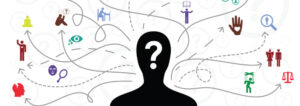The biggest HR trends in 2020
- 5 Min Read
As we begin a new decade, HRD Connect takes a look at some of the biggest HR trends for the year ahead.
- Author: Joe Talora
- Date published: Jan 9, 2020
- Categories

Adapting to AI and new technology
It would be easy to assume that employees are reluctant to welcome AI into the workplace, with fears of a dystopian future where their jobs are done entirely by machines. But a 2019 study shows that, in fact, attitudes are changing and now 53% of workers are optimistic about incorporating AI into their jobs.
With a growing shortage of talent plaguing UK businesses, AI and machine learning may provide a viable solution to recruiters, making it easier to match the right people with the right jobs.
Marko Perisic, Chief Product and Technology Officer at HR and payroll provider Zellis, is well aware of the potential applications of AI and similar technology.
“Human resources and employer-employee relations are being transformed by digital innovation. Businesses can use the data they have on employees to create a digital feedback loop of their interactions, giving vital insight into how they can best retain staff and grow their workforce, as well as helping employees better manage their careers and wellbeing,” he said.
Mark Judd, VP of HCM product strategy, Workday is another who is aware of the importance that AI and new technology will have in the coming year.
He said: “This year we’ll see the end of one-size-fits-all HR as machine learning personalises the employee experience to make people feel more informed, agile, and supported by their employers. By predicting what people want and giving them quick access to what they need, machine learning will help make work more personal and productive.”
Moving to a more holistic approach
Many companies have begun to re-brand their Human Resources departments as People Operations teams, and for good reason. Viewing employees first as people and not as resources is key to ensuring a happy workforce and a winning company culture.
Companies who can connect with their employees and help them to connect with each other are more likely to retain their best and brightest. Understanding their motivations and career ambitions is crucial to ensuring they remain happy and productive.
Moving in to the new decade, there is going to be an increased focus on providing happy and healthy working environments in order to ensure a positive culture.
Richard Morris, UK CEO of workspace provider Spaces, said: “Employee wellbeing is no longer a nice-to have.
“Employee wellbeing has been an area of increased focus for businesses in 2019. There has been an increased awareness of burnout at work and the detrimental effect this can have on physical and mental health.”
Increasing emphasis on soft skills
Upskilling and reskilling, particularly in the tech field, is one of the key challenges currently facing employers. But the focus is increasingly being shifted to soft skills or, as Josh Bersin calls them, “power skills”.
These behavioural and personality traits such as communication ability, creativity and curiosity are not easy to teach whereas the traditional hard, technical skills are, but it is the harder to teach skills that are becoming more important.
According to recruitment specialist group Michael Page, emotional intelligence is at the forefront of these power skills that should be receiving more attention.
“Our capacity for emotional intelligence is one of the most effective ways humans have the edge over our technological counterparts. What is worrying is that candidates aren’t highlighting these skills to potential employers, despite clear demand for them,” said Nick Kirk, Managing Director, Michael Page.
Kirk stressed the importance of placing more focus on emotional intelligence as a desirable power skill in order to avoid what he called “an emotional intelligence skills shortage in the UK”.
Increasing demand for flexibility
“2020 will be the year of the agile organisation,” said Jens Krueger, EMEA CTO, Workday.
The benefits of flexible working arrangements have been discussed at some length this past year and employees are catching on. No longer do they just desire flexible arrangements at work, they demand them.
With the link between being agile and performing well becoming clearer, it is going to be increasingly important for businesses to meet the increasing demand for flexibility in the coming year.
“Recent research shows that businesses generating the most in digital revenues are those able to quickly realign their two most important assets—people and money,” said Krueger.
“This year, businesses will prioritise flexibility and the ability to adapt to changing plans, structures and business models, as they look to stay competitive in a rapidly changing landscape.”
Part of this rapidly changing landscape involves trying to tap into the gig economy market, where talented and productive employees often go unnoticed due to health, care or personal commitments.
“In 2020 we’ll see the gig economy becoming integrated into large corporates, whereas previously they were restricted to digital natives. This will be possible through a focus on process changes and mindset which accepts that flexible working is part of the future and it is here to stay,” said Jonquil Hackenberg, managing partner, Infosys Consulting.
“At its core, the gig economy enables businesses to tap into talent pools that are hard to reach: those with caring needs, disabled people, or those outside of major cities. As almost every industry is now facing a major skills shortage, bringing the gig economy out of the shadows and into the corporate enterprise world will mean that in 2020, we will see previously untapped talent adding new or forgotten skills to the workforce.”









